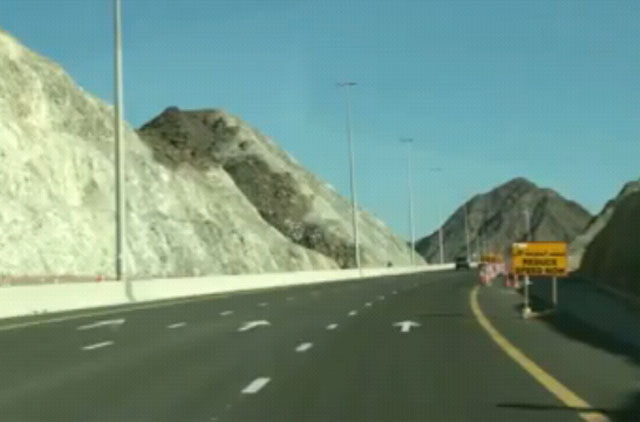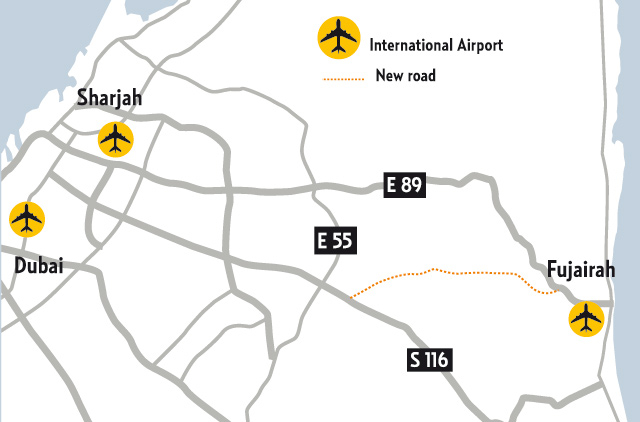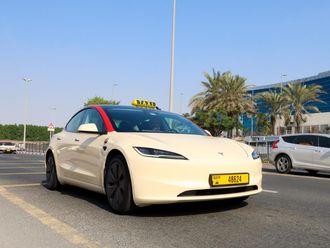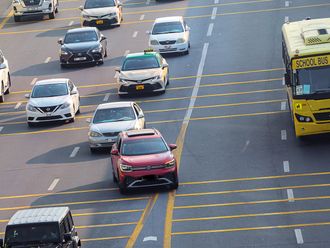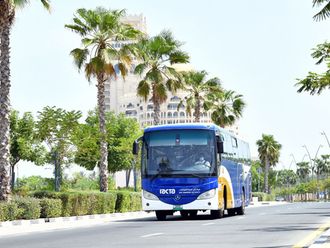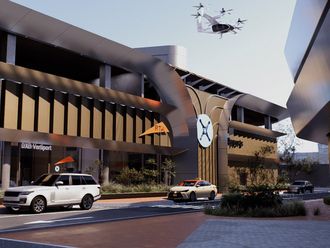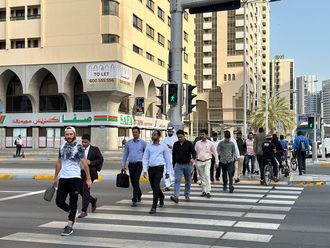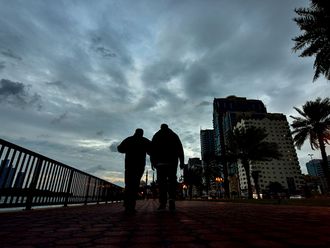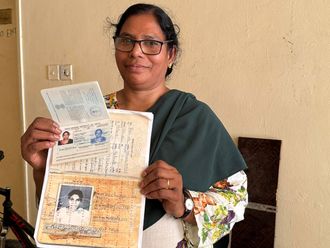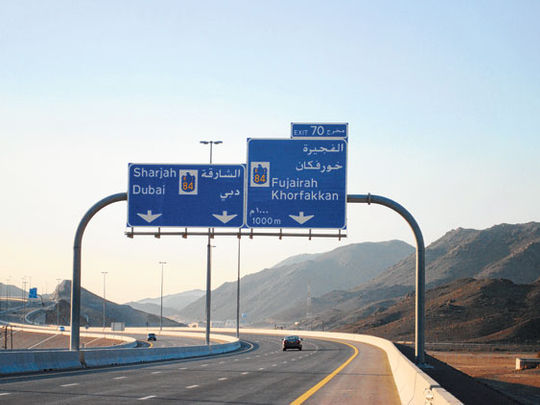
Fujairah: No more. No more running the gauntlet of over-eager fruit sellers hawking their mangoes at the Masafi Friday market, waving slices at you from the end of paring knives, urging you to taste. No more stopping for roasted corn barbecued over charcoal grills, baskets of tomatoes and bags of limes.
And no more weaving across two lanes of traffic at the Souq Al Juma, as the market is known locally. Come to think of it, even though the market is open seven days a week, how come it's only referred to as "the Friday market."
Thanks to the super fast new highway that officially opened on Saturday between Dubai and Fujairah, you hardly have time to peel a mango and eat it before you are on the east coast.
The road took nearly four years to build and was funded by the UAE government to the tune of Dh1.7 billion over its 40-kilometre length. Why so much? When you're carving a three-lane highway through tough terrain, it takes a lot of money to move — and blow up — mountains.
Yesterday afternoon, few drivers seemed to have realised the new route was open.
"It just marvellous," one woman from Abu Dhabi said as she stopped on the hard shoulder to see the work her employer had been contracted to do. "We did all the cementing in the gullies." Because the road cuts through mountains where sudden rainfall and water surges can happen, the engineers building the project had to incorporate slipways to funnel off water into the wadis.
Mystery quest
It's a bit of a misnomer to refer to the road as the Dubai-Fujairah highway. Officially, it's the Shaikh Khalifa Highway, but finding it is a bit of a mystery quest. The Maleha Road runs westwards on the Sharjah side of the border with Dubai. Once you pass Emirates Road 611 — the Dubai Bypass — it's a 40 minute drive tops to downtown Fujairah. Simply follow the road eastwards and, near Hamda, as the Hajjar Mountains rise before you on the flat plain of Mileha, the new highway sweeps off.
Although signs warn drivers that there are speed cameras in effect, they haven't been installed yet.
Through dirty brown mountains, the road stretches, leaving white terraced scars into and around hills. In valleys below, sheep mooch slowly, looking for scraps of grass while workers with backs painfully bent tend to green groves and tilled land.
At the roadside, as the few cars whiz past, construction workers wave red flags urging drivers to slow down. Above, on the terraced rock cuts, workers dangle on ropes, attaching wire meshing to prevent rockfalls onto the road below.
And at Fujairah, when the city roads meet its new link to the rest of the union, the final layer of asphalt is being applied. Highway 84 is open for traffic. Who will miss that winding and dangerous road through the Souq Al Juma. Few, save for those in search of tomatoes, limes and mangoes.


